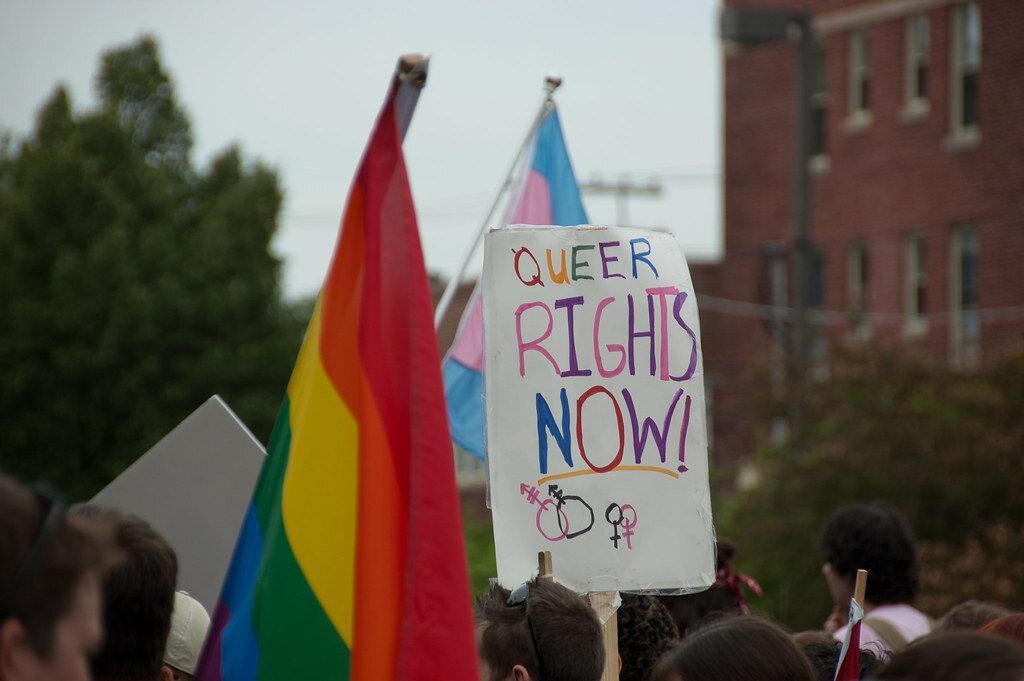by Savannah Hayward | Staff Writer

Generation Action and Pride Club continue to advocate for Whitworth’s LGBTQ+ faculty and staff to become a protected class in the employee handbook.
Since September 2020, Generation Action has partnered with Pride Club to give queer Whitworth employees written rights so that they cannot be harassed, discriminated against or terminated based on their sexual orientation.
This issue is not new. In 2015, ASWU released a student resolution encouraging administration to add sexual orientation to the list of protected classes, which was voted against by Whitworth’s Board of Trustees. On the federal level, sexual orientation has become a protected class through supreme court decisions such as Bostock v. Clayton County.
Similar issues are also being discussed at other universities. At Seattle Pacific University, faculty members recently cast a vote of “no confidence” in the Board of Trustees because the latter announced that the university would retain its sexual orientation-discriminatory hiring policy. According to the Washington Post, last month there were 33 class-action lawsuits from current or former LGBTQ+ students against federally funded Christian colleges.
Chief Diversity Officer and Associate Vice President of Diversity, Equity and Inclusion Lorna Hernandez-Jarvis says Whitworth has a religious exemption from certain categories of protected classes, including sexual orientation. In practice, Jarvis says Whitworth is not discriminating against LGBTQ+ employees and has hired members who are a part of this community.
Generation Action Vice President Jericho Simone says, “Whitworth has already made the commitment that they’re not going to discriminate based on gender or sexuality, and at the federal level they’re considered protected classes. So, Whitworth should just take that final step to match up to their commitment, to match up to federal law and to match up to something that I feel would be particularly beneficial for the student body as well.”
Members of Pride Club and Generation Action have met with President Beck Taylor and Jarvis, as well as the Board of Trustees and its chairman Brian Kirkpatrick.
Generation Action President Emily Marvin says the clubs value that Taylor and the Board of Trustees have listened and given them time.
After their first meeting with the Board of Trustees, Simone says they have been continually sent somewhere else “on the ladder.”
“It felt like we were a ping-pong ball being pushed side to side, left and right, falling off the table at times. It just felt at a certain point that they were throwing us around and didn’t want to have more discussions with us,” Simone says.
Simone says she does not see it as a coincidence that this “ping-ponging” started happening upon Taylor’s resignation.
Taylor made it an important priority to check in on the queer community at Whitworth, Simone says. The safety net of having LGBTQ+ employees’ rights written in the bylaws was not the largest concern of the Pride and Generation Action clubs because Taylor’s commitment to diversity extended to Whitworth’s faculty and staff.
Now that there is no safety net with Taylor leaving, “a commitment is no longer enough,” Simone says. She says that there is this “quiet constant threat” without written protection and that queer employees are “on thin ice.” The university can still act against these employees if they “step out of line.”
“We see Beck leaving and we see his promises to protect faculty going with him,” Marvin says.
Whitworth’s Board of Trustees has not announced an official position regarding this issue.
“[The Board’s] concern is that it puts [Whitworth] at the center of the debate, rather than making the practices or the policy the center of the debate,” Jarvis says.
It is important, Jarvis says, to keep challenging the institution and having conversations. She encourages Whitworth to “not lose track of who is at the center and being impacted the most by these policies and if we are doing the best for them.”
“We’re either going to get an answer from the Board, and if it’s a no, we’re going to keep pushing because this is not only important to us as individuals and people, but it’s also important to the larger Whitworth community,” Simone says.
“Whitworth’s love should not end where their theology does.”
